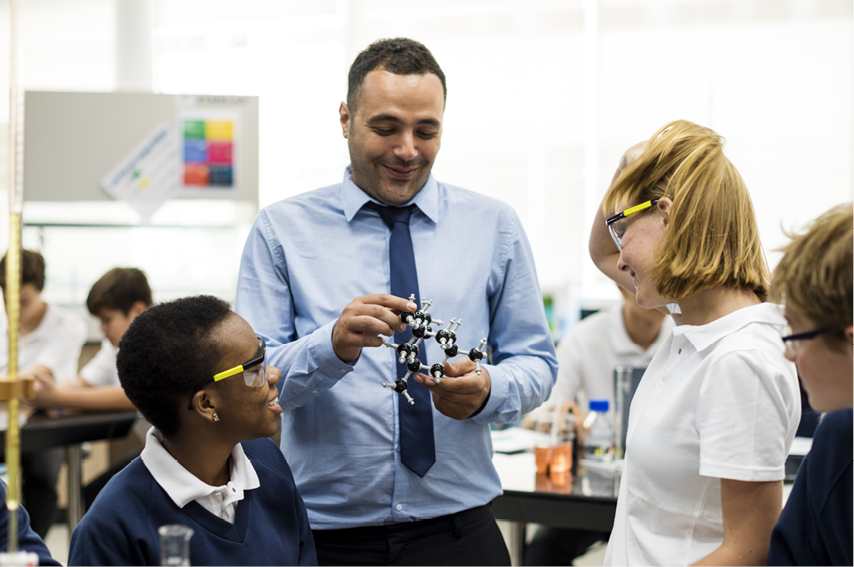At the last Policy Lunchbox we welcomed David Weston, Chief Executive of the Teacher Development Trust, to explore professional development in teaching and how we can better support teachers.
Professional development is key for teachers to carry out their role. Good quality and continuous professional development can help support and develop great teachers and current research suggests that a high quality supportive teacher environment can improve pupil achievement over time.
A review by the Sutton Trust (2011) also showed that pupils from all backgrounds benefit from high-quality teaching, but disadvantaged children benefit the most, indicating that great teaching can not only raise achievement but help create a more equal society and improve social mobility.
But what does good professional development look like? In 2014, the Teacher Development Trust published their review ‘Developing Great Teaching,’ which looked into the international research into what constitutes effective professional development for teachers. The review showcased which type of professional development opportunities actually make a difference.

David Weston, Chief Executive of the Teacher Development Trust explains the value of effective professional development
For example, although a day long one-off CPD course where learning is passive may be good in terms of limiting cost and time for teacher spent out of the classroom, it’s not particularly effective by itself for consolidating new approaches and learning. In reality these approaches can have very little difference in teacher practice or improving student outcomes.
In his talk, David stressed the need for professional development to be continuous and not compartmentalised, so that teachers can continue to apply new approaches learned to their classroom teaching.
He highlighted the need for ‘responsive teaching learning,’ where teacher learning constantly adapts to respond to students, enabling teachers to apply specific content to specific students using techniques to prompt their understanding.
David also highlighted a number of barriers that exist that prevent teachers from taking part in good professional development opportunities. For example, senior leadership teams often lead on training advice but if teachers have little or no say in their training they may feel like they have no ownership, or that there is a lack of support.
Teachers can also feel pressure to deliver results and time spent away from the classroom can be perceived as misspent. The school culture or thinking practices of staff may also cause psychological biases around professional development and resistance to change.

Responsive teaching learning helps teachers to adapt to the needs and understanding of students
So what can be done to address these issues? A good starting point is by actively changing cultures in schools that are warier of change, to challenge misconceptions around professional development. David also emphasised the importance of the Standard for Teacher Professional Development, a guidance document that describes effective teacher professional development and its importance in teaching.
Although the standard is non-statutory, the Developing Great Teaching report, recommends that everyone who works in and with schools need to use the Standard to continually improve the way they contribute to developing great teaching.
Other recommendations include putting the Standard at the heart of the work of governance and quality-assurance roles, and creating robust quality assurance of professional development.
At the end of the talk David noted that learned societies can also play a key role in addressing these barriers and unlocking teacher development. In particular, the collective voices of the STEM community can engage with government on these issues, putting teacher professional development higher on the government agenda.
Professional development of the teaching workforce is a policy area we intend to continue to actively engage with in the future, to continue to support teachers.
If you missed July’s month’s Policy Lunchbox, we streamed it live and you can still watch it on the Biochemical Society’s Facebook page.
At the next education-themed Policy Lunchbox on 26th September, Professor Louise Archer will be discussing the results of the ASPIRES 2 project.
Policy Lunchbox is a joint initiative between the Biochemical Society, the British Ecological Society, the Royal Society of Biology, Society for Applied Microbiology, Society of Experimental Biology and the Microbiology Society.
You can sign up to the mailing list and receive invitations to events straight to your inbox.

